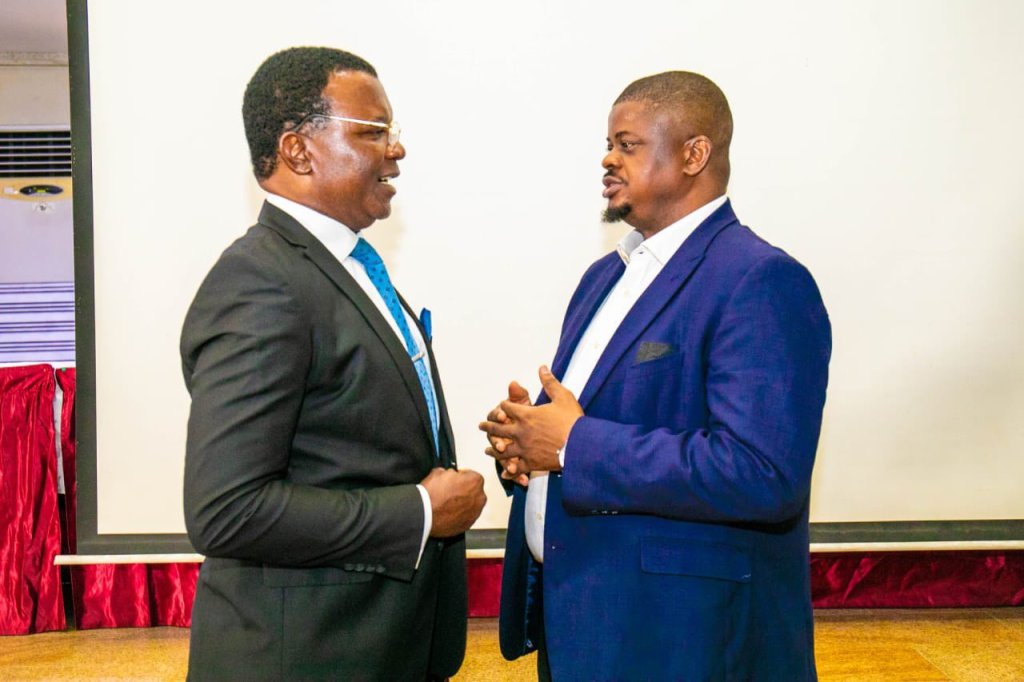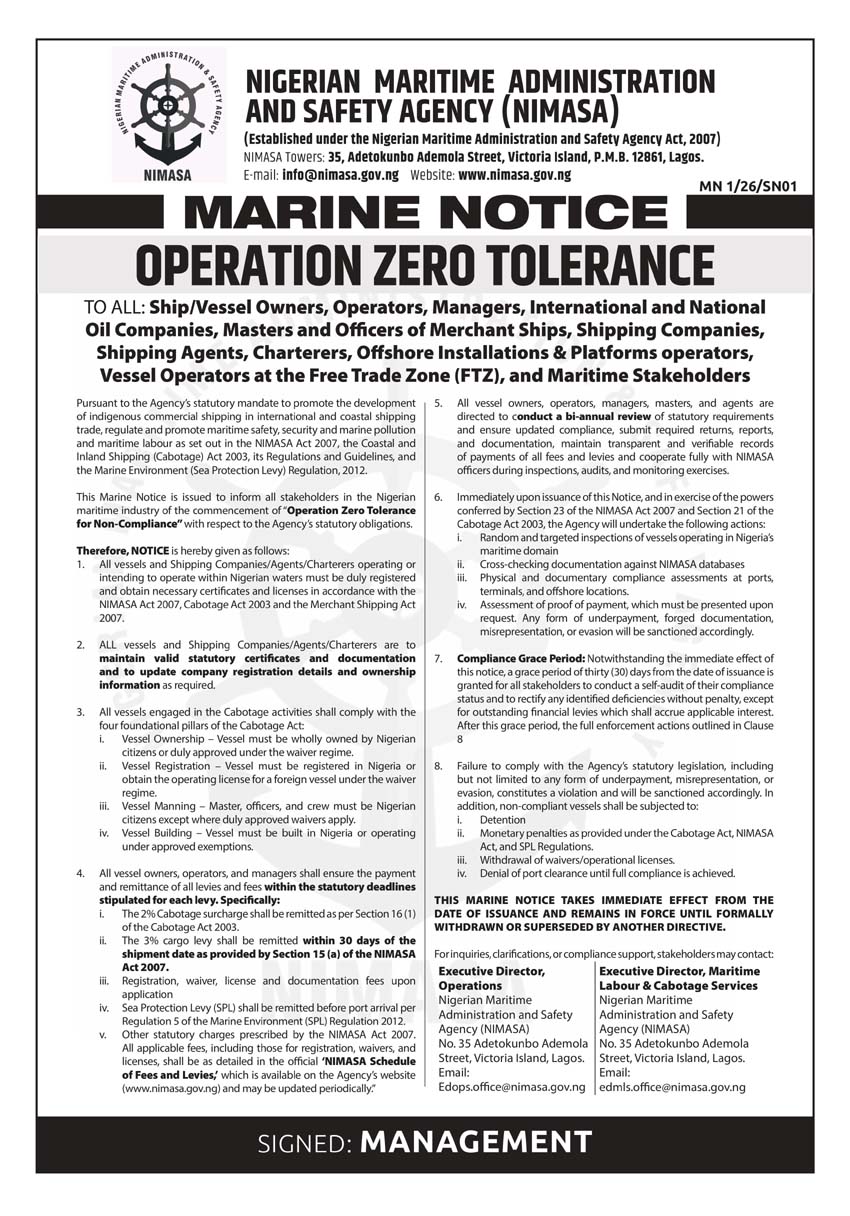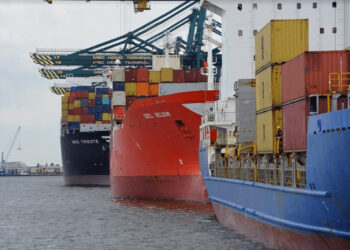
In a bid to enhance the competitiveness of Nigerian ports and align them with global standards, the Nigerian Ports Authority (NPA) has secured necessary approvals for an upward tariff review—the first in 32 years since its last adjustment in 1993.
At a stakeholder meeting in Lagos, NPA’s Managing Director, Abubakar Dantsoho, represented by the Executive Director of Marine and Operations, Olalekan Badmus, explained that the decision to engage stakeholders was driven by the need to ensure broad consultation and alignment on the review process. He emphasized that the tariff adjustment was necessary to address the pressing challenges of aging infrastructure, obsolete equipment, and the slow expansion of port capacity, all of which have weakened the efficiency and competitiveness of Nigerian ports.
He however said the upward review will not affect item rates such as throughput and lease fees, Rents on NPA landed properties, MOWCA levy, Service boat operations and hourly towage and mooring charges.
The NPA also clarified that port costs should not be mistaken for NPA charges, as port costs encompass fees imposed by various government agencies operating within the ports.
The authority explained that the 15% increase, which will apply across all NPA rates and dues except for the exempted items, is intended to provide the financial capacity required to upgrade infrastructure and modernize port operations. Globally, port authorities rely on revenue from operations to fulfill key responsibilities, including the construction and maintenance of port infrastructure, dredging of channels, provision of navigation aids, acquisition of modern marine crafts for efficient harbor services, automation and digitization of port transactions, port security, energy efficiency, and continuous staff training. International trade decisions are often influenced by port competitiveness indices, which are determined by how effectively these responsibilities are managed.

The review comes at a critical time when global economic conditions are increasingly competitive, and nations are vying for trade advantages. This long-overdue adjustment is seen as a necessary step for Nigeria to regain lost cargo traffic and the associated economic benefits, including job creation.
NPA further said contrary to the perception that NPA tariffs are among the highest in the region, verifiable data indicates that they remain among the lowest. The high cost of doing business at Nigerian ports has been largely attributed to unreceipted payments, excessive human interference, bureaucratic bottlenecks, and overlapping functions resulting from the absence of a Port Community System (PCS) and its complementary National Single Window (NSW). Addressing these inefficiencies is crucial to improving port operations and reducing avoidable costs for port users.
Stakeholders at the meeting expressed their views on the development, acknowledging the necessity of the review while also calling for strategic application of the additional revenue to improve port efficiency.
Joshua Asanga, one of the stakeholders present, agreed with the increase, noting that the current tariff structure had been significantly eroded by inflation, which now stands at approximately 35%. He pointed out that several operational costs, including wages and fuel, had risen over the years, while NPA tariffs had remained stagnant. He emphasized that adequate funding is required for infrastructure upgrades, robust ICT deployment for the PCS, and the procurement of tugboats and other operational platforms to improve efficiency.
Another stakeholder, Demian Ukagu, stressed the importance of channeling more NPA funds toward outer port facilities and jetties such as the Kirikiri Lighter Terminal, as well as the development of other critical port infrastructure across the country. He noted that NPA rates should be structured in a way that ensures cost recovery while guaranteeing a reasonable return on investment and fostering sustainable trade.
Discussions at the meeting also highlighted concerns that the previous tariff structure did not adequately account for capital costs, labor expenses, consumables, and other overhead expenditures necessary for efficient port management. Stakeholders cautioned that maintaining the outdated rates would only lead to declining service quality, inadequate infrastructure, poor remuneration for port workers, and continued reliance on outdated port facilities and equipment.
Bill on Port Economic Regulation ‘ll Enhance Efficiency- Shippers Council
The Nigerian Shippers Council (NSC), says the Bill on Nigerian Port Economic Regulatory Agency currently awaiting presidential assent will enhance efficiency at the ports and boost export.
Dr Pius Akutah, Executive Secretary of the council, said this on Thursday in Abuja, after receiving a delegation from the Technical Unit on Governance and Anti-corruption Reforms (TUGAR).
Akutah said that with a new law and a new regulatory agency responsible for port enforcement, there would be enhanced ports, clearly defined mandates of agencies and issues of overlap of duties would be addressed.
“Over the years, there has been battle with the issue of legal regime that guarantees the council’s capacity to act as a proper regulator in the sector.
“The minister has taken a step forward, and the bill that was taken to the national assembly for the enactment of Nigerian Port Economic Regulatory Agency has been passed at Senate and House of Representatives.
“At the moment, the bill awaits presidential assent and in that bill, enforcement issues were critically dealt with,” he said.
Akutah said the bill when assented to would empower oversight committees with adequate supervisory and enforcement powers.
According to him, with the new bill coming on board, and new agency with all the enforcement powers in the law, it will further enhance the quality of work of the committee.
Akutah noted that the steering committee such as the Port Standing Task Team (PSTT) which oversaw issues around enforcement of the manual as it related to all agencies within the port sector, as well as the private sector needed to be commended.
The News Agency of Nigeria (NAN) reports that the PSTT is a group that works to ensure compliance with the Nigerian Port Process Manual and to promote integrity in the maritime sector.
Akutah lauded the efforts of other committees that had worked to enhance the council’s service delivery and called for appointment of sufficient members to each team for adequate management.
Akutah also commended TUGAR for its inter-agency collaboration and removal of rivalry between agencies of government at the ports.
He expressed satisfaction with the synergy between agencies working together, supporting and complementing each other to achieve collective and individual agency mandates.
He urged heads of agencies to continue to strive to improve the sector to build the nation’s economy.
On his part, the Representative of the Ministry of Marine and Blue Economy, Mr Olusanya Immanuel commended NSC on working toward enhanced service delivery in ports.
“We are glad to see your level of commitment to the success of this project and of course, the sensitisation of the entire maritime sector.”
Ms Jane Onwumere, Head, Technical Unit of TUGAR also commended the shipper’s council for the synergy and partnership which had improved the efficiency of Nigeria’s port operations.
















